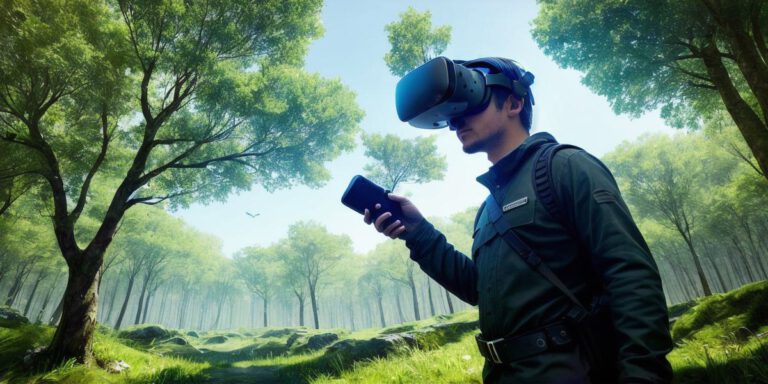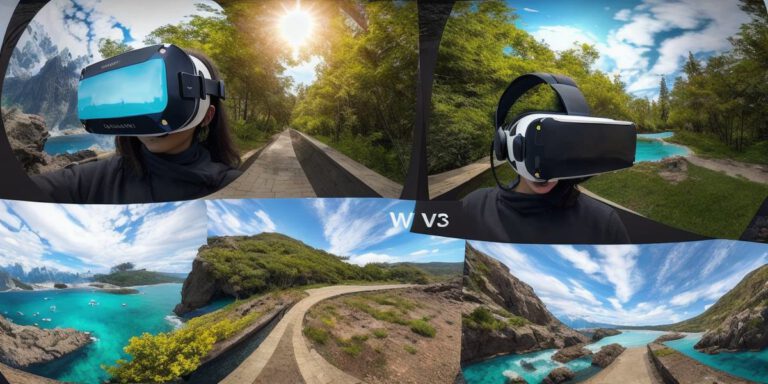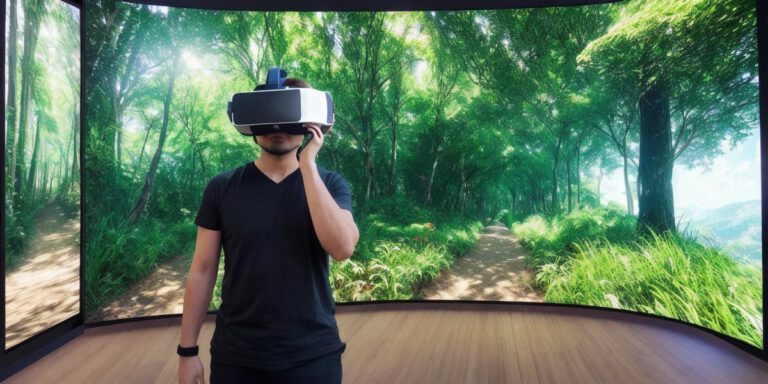“The Future of Virtual Reality: Top Applications and Benefits”

Virtual reality (VR) technology has come a long way since its inception, and it’s now being used in various industries, including healthcare, education, entertainment, and more. In this article, we will explore the top applications and benefits of VR, and how it can transform our lives in the future.
1. Healthcare:
Virtual reality has revolutionized the medical field by providing a safe and immersive environment for patients to receive treatment. For example, surgeons can use VR to practice complex procedures without risking patient safety, while patients can benefit from virtual therapy sessions that simulate real-life situations. Research shows that VR can also be used to treat anxiety, phobias, and post-traumatic stress disorder (PTSD).
2. Education:
Virtual reality has the potential to revolutionize education by providing a more immersive and interactive learning experience. Students can explore historical events in 3D, or even travel to different parts of the world without leaving the classroom. VR also allows for personalized learning experiences, where students can learn at their own pace and receive immediate feedback.

3. Entertainment:
Virtual reality has already transformed the entertainment industry, with games and movies being some of the most popular applications. However, VR can also be used to create more immersive experiences, such as virtual concerts or amusement park rides. As technology continues to advance, we can expect even more exciting applications in the entertainment industry.
4. Business:
Virtual reality is becoming increasingly popular in the business world, with companies using it for training employees, showcasing products, and even conducting meetings in virtual environments. This not only saves money on travel expenses but also provides a more engaging and interactive experience for employees.
5. Tourism:
Virtual reality can provide an immersive experience that allows people to explore different parts of the world without leaving their homes. This can be particularly useful for those who are unable to travel due to distance or cost. VR can also be used to promote tourism by allowing people to experience a destination before they even arrive.
6. Real Estate:
Virtual reality can revolutionize the real estate industry by providing potential buyers with a more immersive and realistic view of properties. This can lead to fewer physical showings, saving both time and money for both buyers and sellers.
- Training and Simulation:
Virtual reality can be used to provide training in various industries, such as aviation, military, and emergency services. By providing a safe and controlled environment for training, VR can help reduce the risk of accidents and improve overall performance.8. Mental Health:
Virtual reality has been used to treat mental health conditions such as anxiety, depression, and PTSD. By simulating real-life situations, patients can confront their fears in a controlled environment, leading to improved mental health outcomes.
In conclusion, virtual reality technology is rapidly changing the way we live and work. From healthcare to entertainment, VR has numerous applications that have the potential to transform our lives in the future. As technology continues to advance, we can expect even more exciting applications and benefits of virtual reality.








